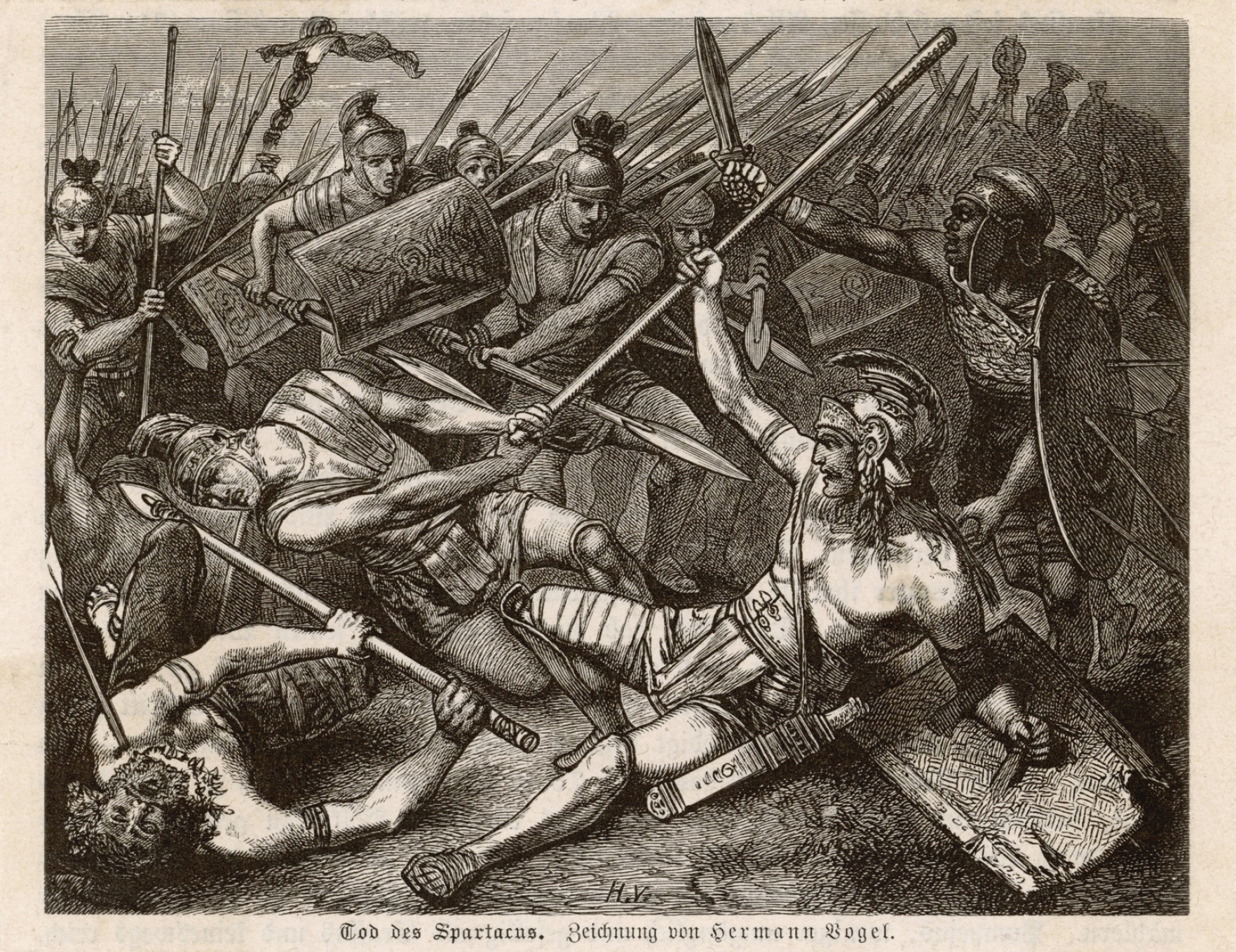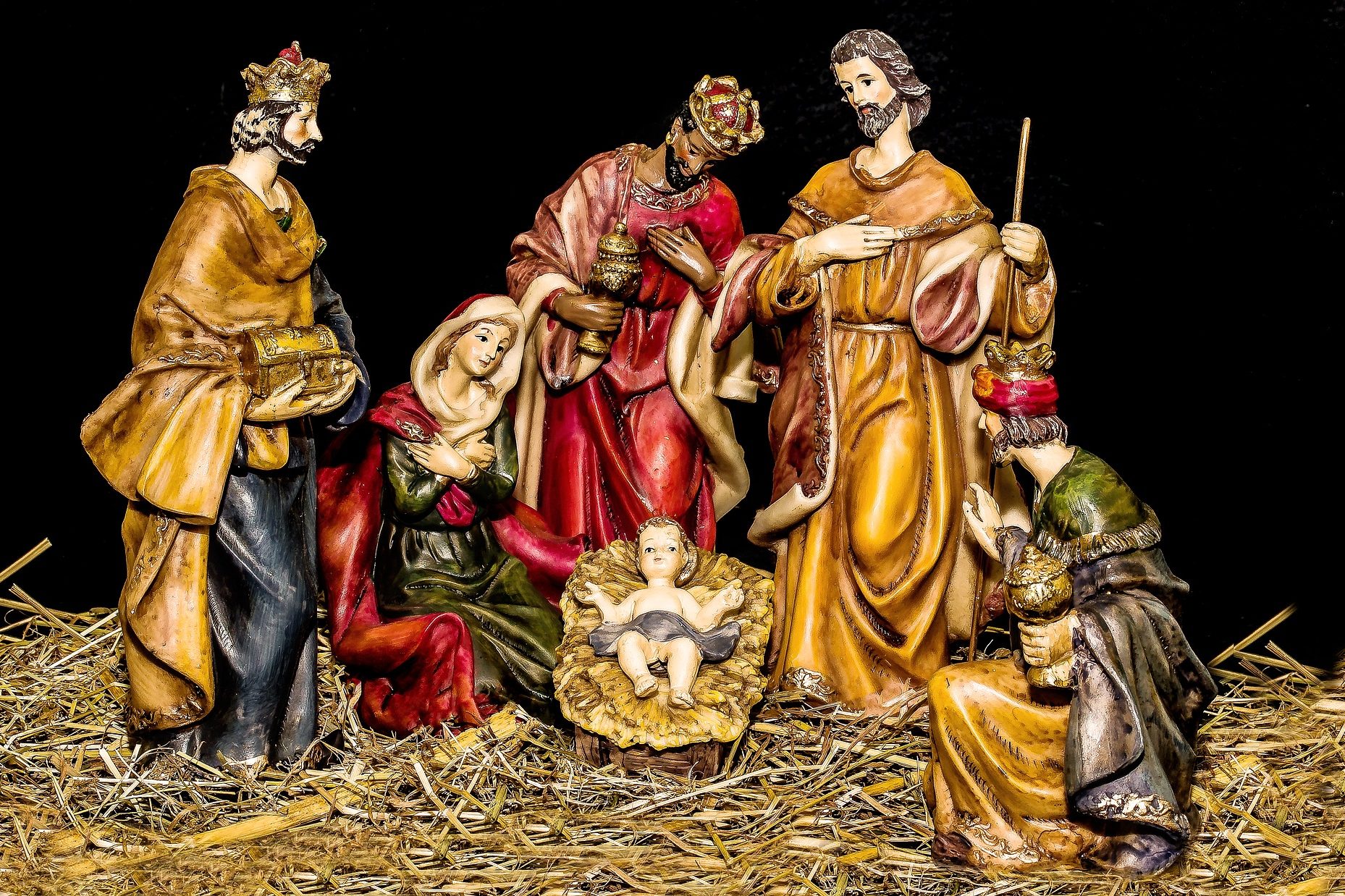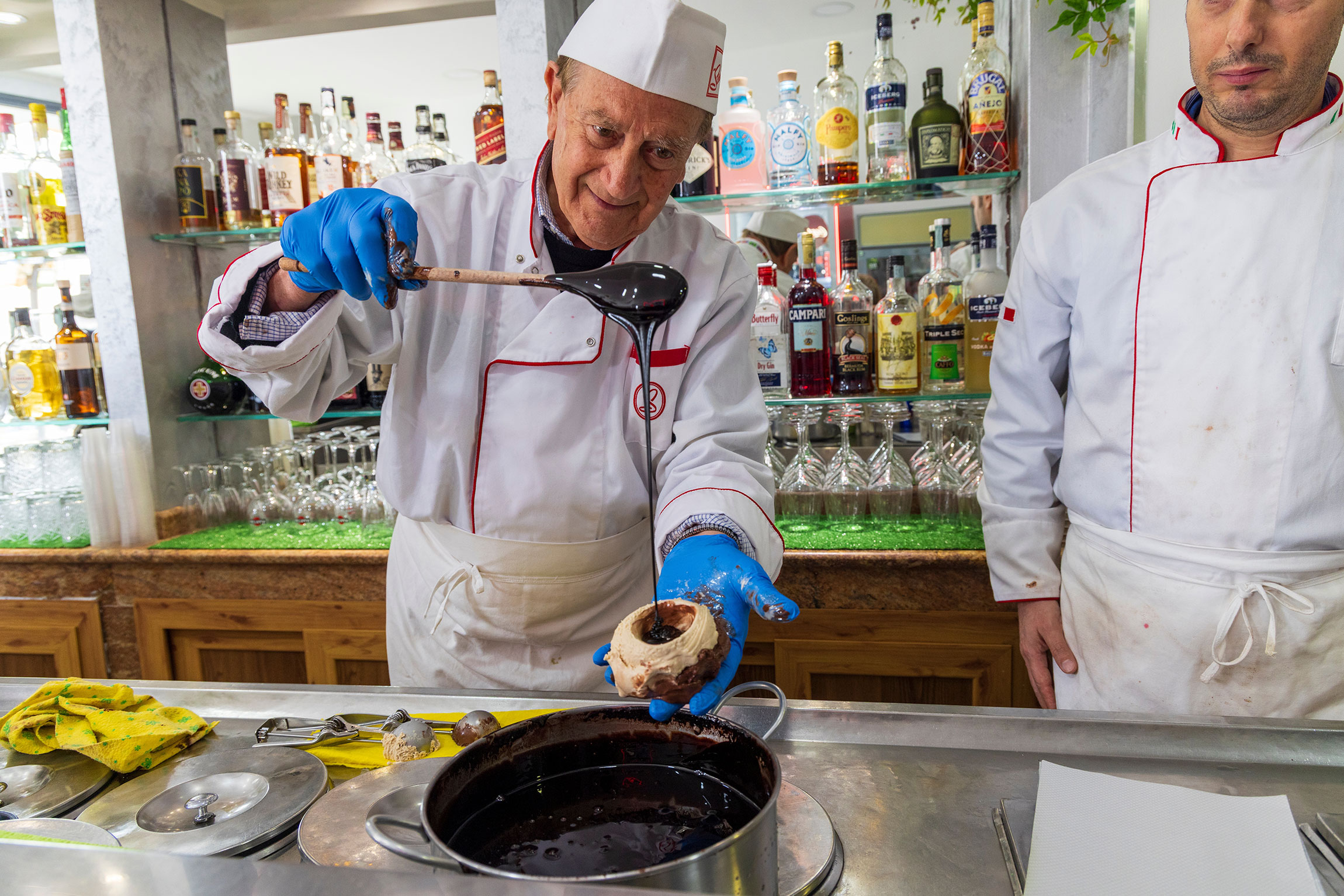For the next 27 years, slave uprisings seemed to be a thing of the past. During this time, however, gladiator games had become one of the more popular forms of entertainment in Rome. So much so, that a number of schools had sprung up throughout Italy for the purpose of training slaves to be gladiators. One school in particular was owned by a businessman named Lentulus Batiatus who believed that bringing such entertainment to the people of Rome might prove to be quite lucrative.
His gladiator school was located in Capua, in the vicinity of Mount Vesuvius, southern Italy. Roman army leaders, with an eye toward making a profit, willingly supplied the schools with slaves who had once been enemy soldiers. It was believed that these new slaves had the right temperament for combat in the arena. The fact that this particular type of slave possessed qualities of a combative nature, should have alerted the Roman Republic to the down side of this arrangement. They had failed to realize that the latest batch of slaves had long memories and knowledge of warlike operations and that they were likely to be angry and dangerous.
Somewhere within the ranks of the Roman legions was a soldier who was virtually unknown, but whose name would soon be on the lips of many Roman citizens. He went by the name of Spartacus. The history of exactly where Spartacus came from, or how he found himself fighting in the arena, is not clear. Some sources claim that he had been one of many auxiliary soldiers in the Roman legions and was condemned to slavery after he was found to have committed a criminal act. Other sources say that he may have been an enemy soldier who had been taken prisoner. What is known for certain is that Spartacus was one of many gladiators in the school located in Capua, Italy, owned by Lentulus Batiatus.
The gladiator schools consisted primarily of prisoners of war and criminals who were condemned to slavery. They had no rights. They existed for the sole purpose of training to kill and to fight to the death, so the incentive to escape was extremely high. In 73 B.C., Spartacus and his fellow gladiators planned an escape which was to occur at a certain time and day, but somehow, their scheme was betrayed. When the gladiators learned of the betrayal, they were forced to abandon their plan and take immediate action. About seventy men stormed the kitchen and used various kitchen instruments such as knives, cleavers and skewers as weapons. They overpowered the guards and hijacked several wagons filled with gladiator weapons and armor. Rome was about to fight a war in its own backyard.
Spartacus and his co-leaders, Crixus and Oenomaus, began by raiding the country side for supplies and recruiting more slaves as they made their way to Mount Vesuvius. The mountain at that time was plush with vegetation and surrounded by fertile farm lands.
Rome seemed unconcerned about a group of escaped slaves and did not see them as a threat. As well, at that time, most of the Republic’s military forces were occupied with battles in Spain and other parts of southeastern Europe. As Spartacus was becoming more powerful, the Senate decided that something had to be done and assigned Caius Claudius Glaber to handle the escaped slave problem. However, Glaber found that the men who had been drafted to do the job were mere civilians in uniform with little or no training and were no match for Spartacus and his band of gladiators.
As Spartacus and his men plundered the countryside, word got around that they were a force not easily defeated.
Consequently, Glaber chose to move cautiously. Instead of attacking Spartacus on Mount Vesuvius, Glabor decided to block any path of escape from the mountain in order to starve them into submission, but his plan didn’t work. Spartacus directed his men to weave ropes and ladders from wild vines and trees which they used to rappel down the side of the mountain in the middle of the night. The Roman encampment was taken completely by surprise as Spartacus and his men outflanked and obliterated Glaber and his soldiers. The battle resulted in the loss of Oenomaus, one of Spartacus’ co-leaders.
Word of Spartacus’ success spread throughout the countryside, encouraging many slaves in the region to abandon their masters and join the gladiators. Spartacus’ forces swarmed over the countryside, concentrating on areas with little defense and a large slave populations. Spartacus was admired for his practice of dividing the spoils of battles equally. This practice enhanced his reputation for fairness and increased the number of recruits. Meanwhile, the Roman Senate was growing more impatient and appointed Consuls Lucius Gellius and Cornelius Lentulus, to defeat the slaves. By this time, Spartacus and his co-leader Crixus were believed to have increased their troop size to 40,000 and were thought to be advancing toward the Alps.
Crixus, however, had decided to remain in southern Italy with his men, thus, splitting the gladiator army in two, a move which proved to be a big mistake. Roman legions under Consul Gellius advanced on Crixus and easily annihilated him and his men.
Consul Gellius then turned his attention to Spartacus from the south while Consul Lentulus came at him from the north. Spartacus now found himself trapped between the two armies which happened to be larger in number and better equipped.
Both Roman Consuls were counting on a quick victory, but what they didn’t know was that Spartacus had amassed a sizable cavalry force in the previous months. Roman soldiers on foot were no match against Spartacus’ men on horseback who devastated Lentulus’ forces and took possession of all their equipment and then turned to do battle against Gellius’ legions.
Whether Spartacus’ troops had beaten Gellius or forced him to retreat is not clear. What is known for certain is that the way was clear for Spartacus and his men to march to the Alps and make their escape to freedom. But for some unknown reason, they turned and began a long march south. Why this happened is a mystery, but it is believed that many of Spartacus’ own men were against escaping to the Alps. Spartacus was known to be a fair leader who allowed his men to voice their views. So it is quite possible that the success of previous battles and the desire for easy pickings of rural Italy, may have gone to their heads. Whatever the reason, Spartacus and his men made the long march to the south and camped at a spot overlooking the Strait of Messina toward Sicily where they believed slaves needed to be set free.
By this time, several new military leaders named Marcus Licinius Crassus, Gnaeus Pompeius Magnus, and Marcus Terentius Lucullius were in pursuit of the slave army. Their legions were among the finest Roman fighting men and they were all moving to trap the escaped gladiators.
Spartacus considered himself fortunate for having struck a deal with some pirates who agreed to take all of Spartacus’ men across the Strait of Messina to Sicily. The pirates readily accepted Spartacus’ gifts but sailed away leaving Spartacus and his men to the mercy of the Roman legions.
Spartacus, in an attempt to avoid a trap, was forced to launch his entire army against Crassus’ legions, but the slaves were badly outnumbered and ultimately they met their defeat at a place called Apulia.
The Roman legions took 6,000 slaves prisoner and executed them all by crucifixion along the Apian Way. Their bodies were left on the crosses for several months where they were left to be eaten by vultures. The display of crucifixions was intended to discourage the slave population from taking up arms against their Roman masters. The fight against Spartacus and his army of gladiators was the Third Servile War and the last slave uprising against Rome. The body of Spartacus was never identified and so it was never determined if he had died in battle or was crucified.































